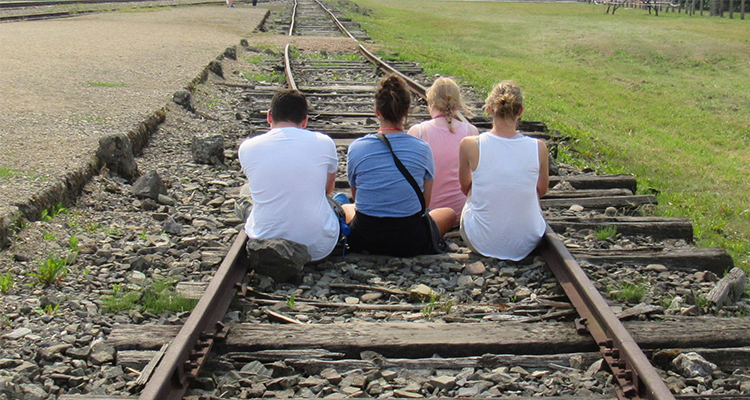“How in a normal civilized society was [the Holocaust] allowed to happen? How did people stand by and allow it to happen? What motivated those who didn’t stand by? What was the difference in their lives?”
These are questions Jamie Campbell considers when thinking about the “humanitarian crisis,” as she refers to the Holocaust.
It’s not “just the facts, ma’am” with this Central Catholic High School history teacher. She looks at more than “this president and this war.” Campbell’s lens focuses on “the people who lived in the history, the people who struggled.”
“It is their stories that have created our country and our world,” she said. Her interest in history, she says, is in the “social justice aspect of it.”
And what better way to deal with social justice than to become involved in Classrooms Without Borders, a Pittsburgh-based organization immersed in Holocaust education of the experiential kind.
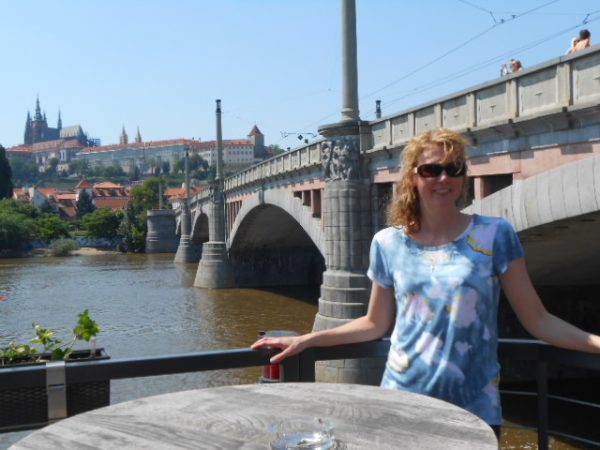
In teaching history, Campbell says, “you see so clearly everything is related. Nothing exists in this little time capsule without affecting the generation after or two or three generations afterward.”
And as Wheeling program coordinator for Classrooms Without Borders, Jamie’s goal is to expose teachers and students to Holocaust education.
But more importantly, her goal is to teach that we “are one human race. … The world isn’t divided into us and them. … We are humanity.”
“It’s so easy to marginalize when you can classify someone as ‘the other’ … when that person has a face and has a name and you have a connection, it’s much more difficult to dehumanize. In the world today, in the country today, that’s paramount to our mission — to take these lessons from the Holocaust and really ask those hard questions. What have we learned? Are we using what we’ve learned? How can we further these lessons so it doesn’t happen again? Because we’ve seen in Rwanda, we saw in Bosnia, sadly the Holocaust was not the end. In Syria today. It’s not the scale, but the roots are there.”
CWB and TSIPY
Classrooms Without Borders was founded in 2011 by Dr. Zipora (Tsipy) Gur, a leader in Jewish education, who still serves as CWB executive director. Since 2011, CWB has provided hundreds of educators and students the opportunity to travel to countries such as Poland, Germany, Israel, Greece and Spain, to learn about the effects of the Holocaust. Besides its home base of Pittsburgh, there are branches in Wheeling and Louisville, Ky.
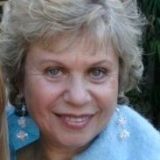
“[Tsipy] is an absolutely fascinating person,” Jamie said. After the war, both of her parents emigrated to Israel, where she grew up. She moved to the U.S. when her husband took a job at UPMC in Pittsburgh. An educator, principal and superintendent for Jewish schools in the U.S., she realized that “young people really knew very little about the Holocaust — specifically young people in the Jewish community,” Jamie explained.
Why? Because few survivors talked about their experiences.
So, Dr. Gur started CWB to work with teachers, so they could share what they learned with their students.
A tagline of CWB is “changing lives, one trip at a time,” Jamie said. “So that’s been her approach, one school at a time, one student at a time. … She funded the first few trips by baking and selling cheesecakes, and baking them all in her kitchen … hundreds and hundreds of cheesecakes. It was crazy,” Jamie said.
Dr. Gur still travels on every trip that CWB takes. “She is amazing,” Jamie said.
‘You’re Going to Berlin’
In 2013, Jamie’s then-principal Julie Shively came to her and said, “You’re going to Berlin.”
Shively had met Rabbi Beth Jacowitz Chottiner, who was the rabbi at Wheeling’s Temple Shalom at the time and connected with the CWB. (Rabbi Beth is now based in Louisville, where she started another CWB chapter.)
It made sense to Shively to connect Jamie, who was the school’s social studies teacher and soon-to-be department chair, with the organization.
And off to Berlin, she went. And Dresden and Prague.
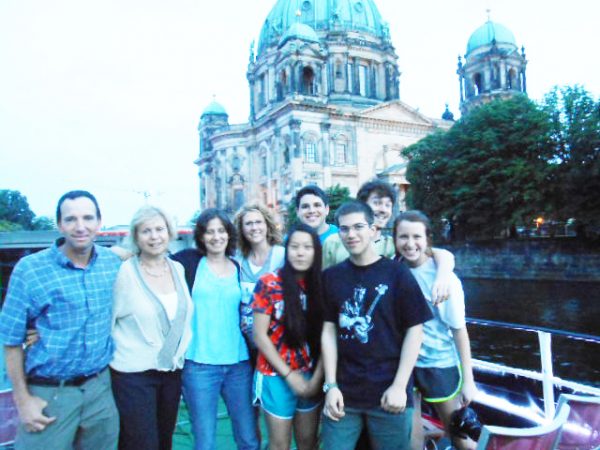
When Jamie returned from the trip, she and Rabbi Beth formed the Wheeling Advisory Board for CWB, spreading the word to area schools and organizations in order to share its mission.
In 2014, she traveled again — this time to Poland. The Wheeling chapter has funded two more 10-day trips to Poland for educators and students, in 2016 and 2018.
The Wheeling board members decided that because they fund the trips for educators and students, they would support a trip every other year, giving them time to raise money, Jamie noted.
The Poland trip is really the focus of CWB, she explained “It’s the premier trip. You start in Warsaw and then [travel] to multiple places.”
The Experience
Auschwitz, Majdanek, Treblinka.
Not everyone can endure visiting those concentration camps.
“Some of the buildings where the gas chambers are, there often are people on the trip, they can’t [go in]. And that’s ok. Nothing is forced. There’s a lot of support. Tsipy is always traveling with us. There are local guides; some she brings in from Israel to travel with us … There’s also just a bond with each other and, because it’s unlike anything anyone had ever experienced or probably will experience, there’s just that openness and support — it’s OK to grieve, it’s OK to cry, it’s OK.”
Jamie pinpoints one particular moment that hit her. “… the kids call them triggers, and they say, ‘this is what made me lose it.’”
She remembers her “trigger.”
“We were in Auschwitz. We had been through Majdanek, and we’d been through Treblinka, and even going through some of the barracks at Auschwitz, I felt this grief and the sadness, and there’s just a feeling of oppression when you’re there.
“But we went to where they have a room, and all around the walls are pictures that were drawn by children who were in Auschwitz, and we were looking at those, and one of them, it was just this very simple, little bowl with flowers, and in French it said ‘for mama.’ My daughter at that time was 8, and she loved to draw, and she would draw flowers, and she would draw vases, and she would slide them under the door of my room, and she would put one in my school bag, and it would always say ‘for mommy.’
“And I just I saw that … it still just tugs at my heart, because that for me is what made it so real — that could be my daughter, that could’ve been my family and that to me, that was what put everything into perspective.”
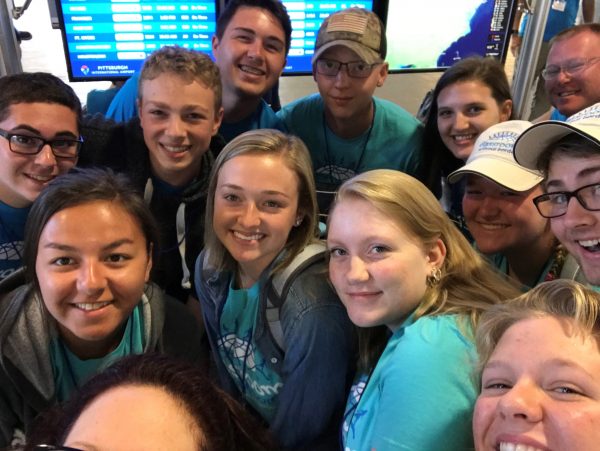
Jamie also talks about Howard Chandler, a Holocaust survivor who lives in Canada but travels with the group on all of the Poland trips.
“He is in his upper 80s, pushing 90. … Howard was in Auschwitz, and as it is with any of those who are still with us who are survivors, were children [during the war]. So for teachers and students to be able to travel with him as he talks about ‘this is where my bunk was’ and ‘this is where my father was,’ and ‘this is where I was the last time I ever saw my father and my brother,’ and to travel back to his hometown and to stand in front of what was his boyhood home and for him to talk about that, it is just priceless. You could never replicate it in any book, even in any video, because it is the whole experience. It’s the sights, it’s the sounds, it’s the smells. They’re people, they’re just like us,” she said.
“People ask Howard all the time, ‘Why did you survive? … Were you special? Were you stronger? Did God have a special plan for you?’ and he says, ‘No I was lucky. I was just lucky.’
“He’s 5-foot-2 … and he’s full of life. It’s so wonderful, especially for the students, because sometimes they become so emotional. … The trip is difficult for them to process — for anyone it is difficult to process, but especially at that age, and for them to spend that time with Howard who is still grieving, and the pain is still there, but he’s also still so full of life, it’s so inspiring. … For the students to see that there is always hope. … If Howard can survive the Holocaust and be the only member of his family who survived and still dance with the teenagers at the festival, it is so life-affirming for me.”
Jamie said that Howard spends a good part of his time on the bus traveling with the students. “By the end of the trip, they always say it’s like having their grandfather with them.”
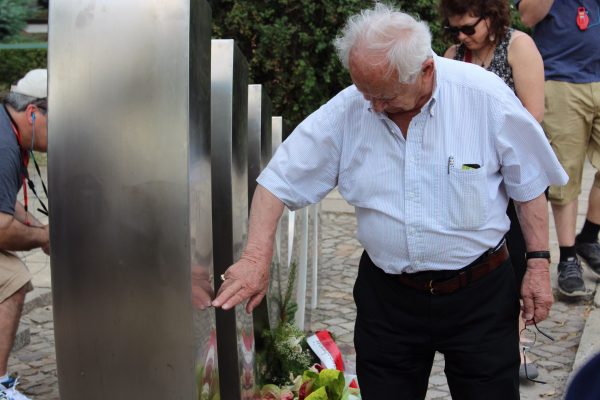
Deep, Lasting Effects
A palpable sigh escapes from deep within Jamie when asked how CWB trips have changed her life.
“Professionally, it renewed my commitment and passion for teaching through that lens of social justice. … that it does matter how events affected the common people, how they responded. Because, without the support of normal, everyday German population, the Holocaust wouldn’t have happened. It re-energized that passion for me for teaching and working with other teachers and students.”
It also changed her life personally.
“I took a very, very hard look at my life and made some decisions … am I living the life I want to live? Am I the woman that I want to be?” she asked herself. “I’ve really looked at all my relationships. … is every relationship in accordance with what I believe, how people should respect each other and treat each other with kindness?”
Sharing the Experience
Upon a group’s return, Jamie works with the teachers and students who have traveled.
“We have some meetings that are just simply debriefing, to share, to talk about the experiences, to start making some sense of feelings. And then we work toward creating something tangible from the experience,” she said. “Every group who travels has the opportunity to decide for themselves how they want to do that.
“We have a group from John Marshall who traveled, and they are using a 3-D printer to recreate a model of Auschwitz, and they’re creating the blueprints. Their focus is that someone actually sat down and drew blueprints for the concentration camps, someone sat down and worked out the train schedule. The technology that we had at the time — which could have been used to save people — instead, those brilliant minds turned it to ‘how many can we kill?’”
Bill Brubaker, a history teacher from The Linsly School, is creating a Holocaust course. All of the teachers who participated in the 2018 summer trip will meet in the spring to share how they’ve used their experiences in the classroom. Eventually, she said, they’d like to put together a resource book for teachers, with appropriate lessons for middle and high school students.
“We think of it as each group’s legacy,” she said of the projects that come after the trip.
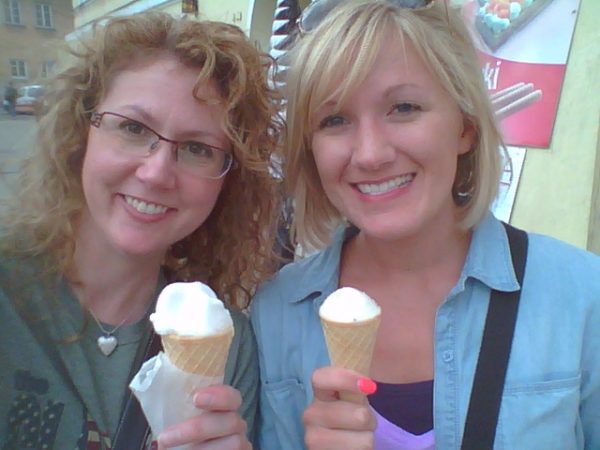
Community and Fundraising
In order to send teachers and students on the life-changing, immersive trips, CWB must raise all the funds to support their travel. Marrying fundraising with community involvement is one way they do it.
On Wednesday, Oct. 17, CWB will host Avner Avraham, a former Mossad officer, producer and curator, who will speak at 7:30 p.m. at the cafetorium in Banes Hall at The Linsly School.
Avraham, who was a “spy,” will discuss his experiences in espionage, his connection with the film, “Operation Finale: The Capture & Trial of Adolf Eichmann,” the state of Israel and the Holocaust. The program will last for 90 minutes and will include a question-and-answer session. A $5 donation is requested; there is no charge for students.
Avraham recently spoke in Louisville as a part of a CWB program. Rabbi Beth’s husband, Lee Chottiner, covered the event, and you can read his story here.
Also at the Oct. 17 event, an exhibit of photographs taken by participants on the 2018 CWB trip to Poland will be on display. The exhibit is available to travel to classrooms or community events, Jamie said. “We are more than happy to pack it up and show up at your door,” she said.
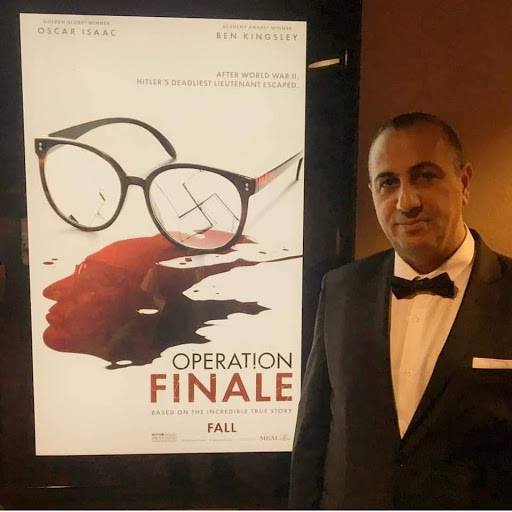
In November, CWB will present the “Willesden Lane Read,” a program for school children, teachers and the public.
Mona Golabek’s book, “The Children of Willesden Lane,” tells the story of her mother Lisa Jura, who survived the Holocaust. In 2003, Golabek founded Hold On To Your Music, the goal of which is to offer the book and accompanying educational materials to students and teachers.
“In 1938, 14-year-old Lisa Jura was a musical prodigy in Vienna who hoped to become a concert pianist. Her dreams were interrupted when Hitler’s armies advanced. Her parents were forced to make the difficult decision to secure safe passage to London aboard the Kindertransport for only one of their three daughters. They chose to send Lisa, believing her talent would give her strength and could help reunite them one day. There, in a hostel on Willesden Lane, Lisa’s music became a beacon of hope for her, as well as other displaced children who would cheer her on as she fought to realize her musical dreams,” the website explains.
The name comes from the words spoken to Lisa by her mother as she boarded the Kindertransport: “Hold on to your music. It will be your best friend.” Lisa never saw her mother again. Both of her parents perished, but her two sisters did survive.
“It’s an incredible book because it’s [about] this teenager going through unbelievable events, but she’s still a teenager,” Jamie said. “In one scene, she and some of the other young people who live in the youth hostel, they’re on the roof of the building because it’s the blitz, and so they’re watching for bombers, and they’re watching for fire, and she’s also thinking that the boy next to her is cute and will he put his arm around her.”
“Hold On To Your Music seeks to expand awareness and understanding of the ethical implications of world events such as the Holocaust, and the power of the arts, especially music, to embolden the human spirit in the face of adversity,” according to the program’s website.
“[CWB] partnered with local schools. We provided the books to the teachers at no cost to the schools, and we provided teaching resources,” Jamie said.
As part of the project, CWB is bringing Golabek’s one-woman show to Wheeling. Golabek, a recording artist and concert pianist, weaves her mother’s story with classical music, bringing the book to life. The event is set for Friday, Nov. 16, at The Capitol Theatre.
The Power of One
“Lisa Allen (CWB advisory board chair) and I … have said that … it’s the people we touch, it’s the people we meet in passing, it’s the people you happen to talk with in line at the grocery store, in meeting and talking with your child’s teacher … it’s those ways that we touch each other … in the most significant and real ways,” Jamie said.
“[It’s] the power of one person. It’s so easy when you look at something like the Holocaust … and you look at the numbers, the sheer numbers, and think, ‘what could one person have done?’ Today, as beautiful as life is, sometimes you look around, and it’s such a mess, and you think ‘what can I do?’ It is the power of one person, one person touching another.”
“And if we maintain all of our relationships based on respect and kindness, then [the Holocaust] can’t happen again.”
For more information about CWB, its programs and events, or to apply to participate in a future trip, visit classroomswithoutborders.org.
(Photos provided by Jamie Campbell)
• After nearly 38 years as reporter, bureau chief, lifestyles editor and managing editor at The Times Leader, and design editor at The Intelligencer and Wheeling News-Register, Phyllis Sigal has joined Weelunk as managing editor. She lives in Wheeling with her husband Bruce Wheeler. Along with their two children, son-in-law and two grandchildren, food, wine, travel, theater and music are close to their hearts.


